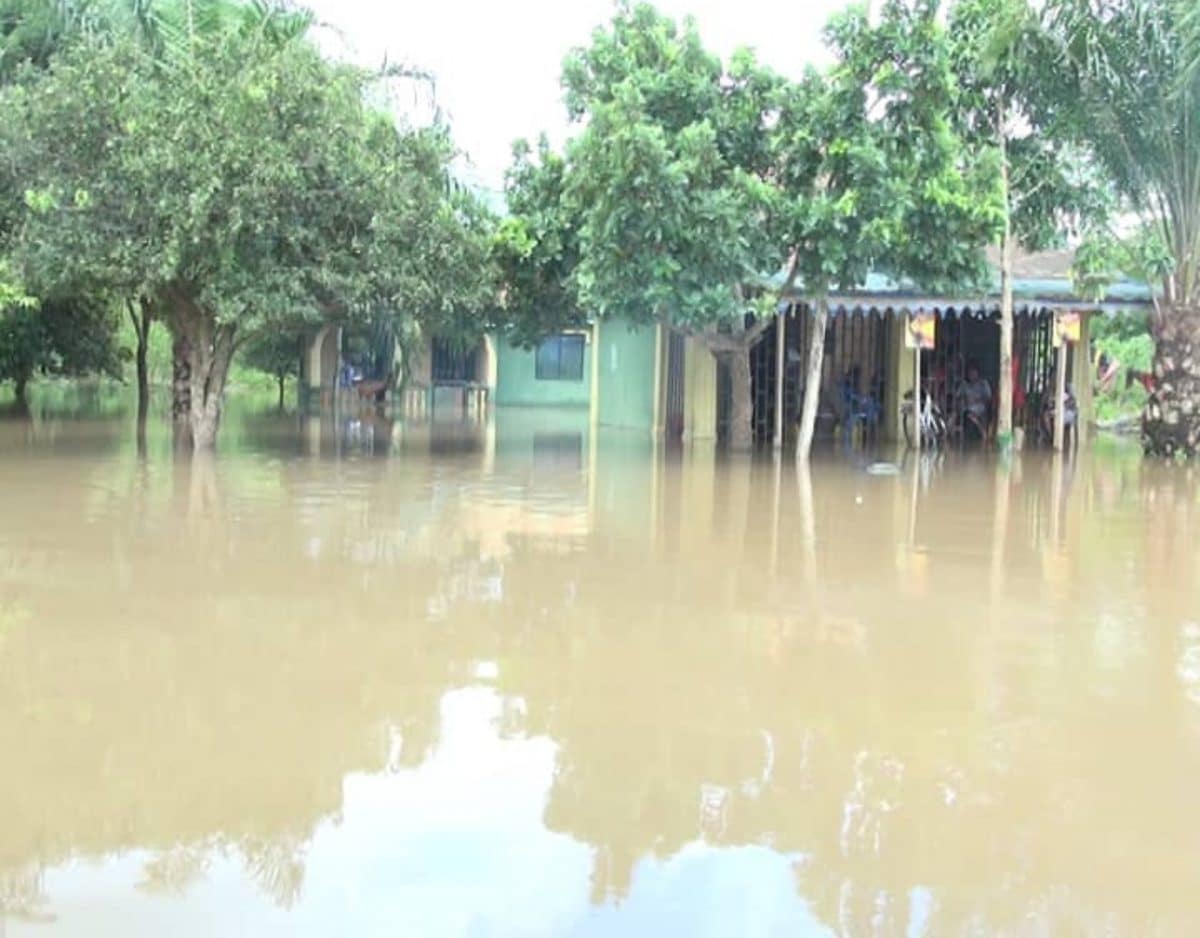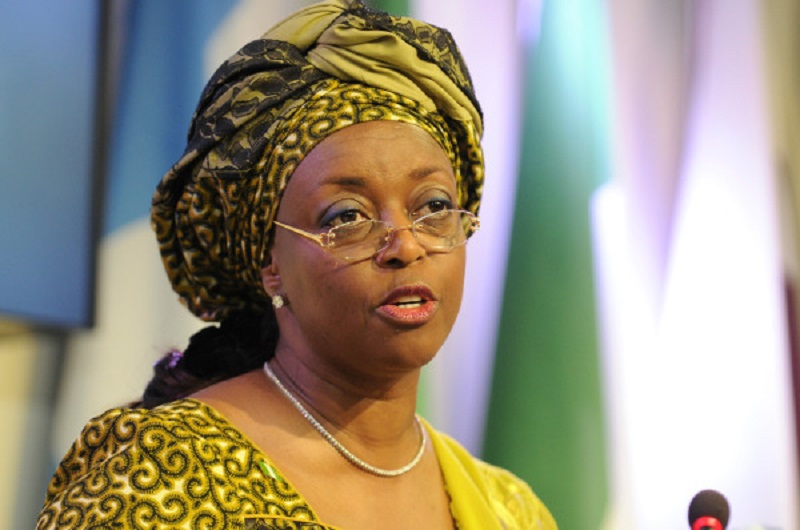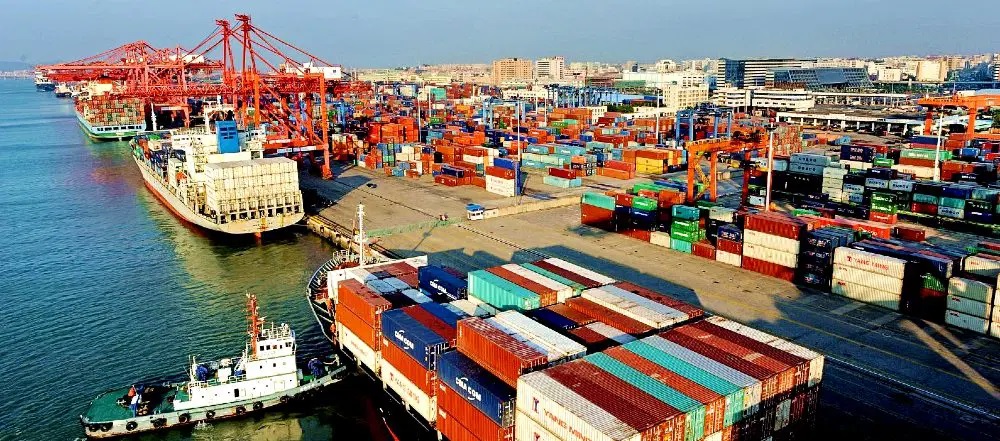General
EU Provides €70,000 to Tackle Floods in Ondo, Four Others

By Adedapo Adesanya
The European Union (EU) has announced the provision of €70,000 to reduce the impact of floods in Nigeria as the country anticipates the high flooding period.
The EU funding supports the Nigerian Red Cross Society to increase capacity and preparedness to reduce the impact of likely floods in Ondo, Kogi, Kebbi, Anambra and Cross River States.
This will be done through increased community awareness, prepositioning of stocks, mapping of evacuation centres and hygiene promotion.
It is expected that this support directly benefits 10,000 people and, indirectly, around 25,000 more.
The funding is part of the EU’s overall contribution to the Disaster Relief Emergency Fund (DREF) of the International Federation of Red Cross and Red Crescent Societies (IFRC).
In the past decade, especially during the last three years, there has been an observed pattern of flooding in Nigeria, with floods becoming the second most recurrent hazard affecting the country, after the epidemics.
The high flooding period generally recorded from August to October is usually characterised by the collapse of major dams, overflow of riverbanks and heavy occupation of residential areas or the environment by large masses of water due to heavy flow of run-off rainwater, uprooting and washing away of residential buildings, and blowing away roofs of buildings.
The rainy season also brings with it landslides in which hills and high lands collapse, burying people’s buildings and farmlands. The menace of erosion also comes in to contribute to further deterioration of the condition of the people and environment.
These trends are showing the necessity to anticipate the forecasted hazard and contribute much earlier to the preparedness in the areas at risk.
As such, the Nigeria Red Cross Society will take preventive measures to prepare for the anticipated impact that these events could have on the humanitarian situation before the flood season hits the country.
The EU is a signatory to a €3 million humanitarian delegation agreement with the International Federation of Red Cross and Red Crescent Societies (IFRC) to support the Federation’s Disaster Relief Emergency Fund (DREF).
Business Post understands that funds from the DREF are mainly allocated to small-scale disasters – those that do not give rise to a formal international appeal.
Each time a National Red Cross or Red Crescent Society needs immediate financial support to respond to a disaster, it can request funds from the DREF which was established in 1985.
General
Alison-Madueke Denies Wrong Doing as Prosecutors Present Evidence

By Adedapo Adesanya
Embattled former Nigerian Minister of Petroleum, Mrs Diezani Alison-Madueke, returned to court in London on Monday, denying wrongdoing as prosecutors presented evidence for an alleged bribery.
It was recently reported that Mrs Alison-Madueke, once president of the Organisation of the Petroleum Exporting Countries (OPEC), received cash and luxury benefits in exchange for influence over oil and gas contracts when she was a minister in the cabinet of former President Goodluck Jonathan.
She has denied the claims repeatedly.
In the latest development in her trial, jurors in the British court today heard testimony from a luxury furnishings retailer and a former housekeeper, as prosecutors sought to show how high-end purchases and property use were allegedly routed through intermediaries.
The 65-year-old is accused of multiple bribery counts stemming from a years-long investigation.
The alleged offences occurred between 2011 and 2015, when she was Nigeria’s oil minister but maintained a UK address.
The UK National Crime Agency (NCA), which targets international and serious and organised crime, accused her of receiving the bribes in Britain.
Mrs Alison-Madueke is accused of accepting “financial or other advantages” from individuals linked to the Atlantic Energy and SPOG Petrochemical groups.
Both companies secured contracts with the then Nigerian National Petroleum Corporation (NNPC) or its subsidiaries, according to the prosecution.
The former minister is also said to have received £100,000 ($137,000) in cash, chauffeur-driven cars, a private jet flight to Nigeria and refurbishment work and staff costs at several London properties.
Other counts allege she received school fees for her son, products from high-end shops such as London’s Harrods department store and Louis Vuitton, and further private jet flights.
Mrs Alison-Madueke has been involved in numerous legal cases globally, including in the United States.
She has been on bail in Britain since she was arrested in October 2015.
In 2023, she was formally charged with accepting bribes, which she has denied.
General
Egbin Power Unveils Tech Empowerment Scheme for Youth Employability, Others

By Modupe Gbadeyanka
An initiative designed to encourage entrepreneurship, expand access to opportunities in the digital economy, and improve the employability of young people in its host communities has been launched by Egbin Power Plc.
The tech-based empowerment programme will equip young persons from Egbin, Ijede and Ipakan areas of Lagos State with digital skills.
The chief executive of the power-generating firm, Mr Mokhtar Bounour, described the initiative as part of the company’s Personal Corporate Social Responsibility (PCSR) efforts, reflecting its commitment to inclusive and sustainable development, adding that its responsibilities extend beyond electricity generation to empowering people in surrounding communities.
“In today’s digital age, technology is no longer optional but a critical driver of economic inclusion and growth,” Mr Bounour said, noting that deliberate interventions were needed to bridge digital gaps and prevent uneven development.
He explained that when communities are excluded from the digital economy, development becomes uneven and unsustainable, reinforcing the need for deliberate interventions that bridge digital gaps.
He pointed out that, “The Empowerment Programme is designed to address this gap by providing young people in Egbin, Ijede and Ipakan with access to practical and in-demand digital skills that can improve employability, foster entrepreneurship, and create new economic opportunities within their communities.”
The first cohort brings together beneficiaries from the three communities for structured training in ICT fundamentals, graphic design, full-stack web development, digital marketing, cybersecurity and data analytics. The programme combines classroom instruction with hands-on learning.
Participants were selected through a screening process that assessed curiosity, determination and willingness to learn, the company said. Beyond technical training, the programme also includes workplace skills such as ethics, problem-solving, collaboration, professionalism and digital responsibility.
Mr Bounour urged beneficiaries to act as ambassadors of the initiative and demonstrate the values of integrity, discipline and service, saying their progress would serve as evidence that strategic corporate responsibility can deliver measurable impact.
He encouraged participants to recognise their broader responsibility to their communities, urging them to learn with character, pay their knowledge forward, mentor others, and use their skills to solve real local problems. He noted that the true legacy of the programme will be the ripple effects it creates through shared success and communal growth.
The launch of the Tech Empowerment Programme underscores Egbin Power’s continued commitment to sustainable community development, trust-building, and long-term value creation.
The company reaffirmed its dedication to investing strategically in people, strengthening host communities, and contributing meaningfully to Nigeria’s digital and economic future.
General
NPA Working to Eliminate Manual Bottlenecks, Synchronise Operations Across Seaports

By Adedapo Adesanya
The managing director of the Nigerian Ports Authority (NPA), Mr Abubakar Dantsoho, has said the organisation is in collaboration with the International Maritime Organisation (IMO) to deploy the Port Community System (PCS) will eliminate manual bottlenecks and synchronise operations across Nigeria’s seaports.
Mr Dantsoho disclosed this at a recent three-day high-level stakeholder engagement in Lagos titled Achieving a 7-day Cargo Dwell Time, organised by the Presidential Enabling Business Environment Council (PEBEC) in collaboration with the NPA.
The engagement convened the Ports and Customs Efficiency Committee (PCEC) under the Business Environment Enhancement Programme Accelerator (BEEPA) framework, focusing on streamlining port processes to improve efficiency and ease of doing business.
According to the NPA boss, the PCS will serve as the digital backbone of the National Single Window, enabling seamless information exchange among port stakeholders and reducing delays caused by manual documentation.
On her part, the director-general of PEBEC, Mrs Zahrah Mustapha, said the session was designed to go beyond identifying challenges and focus on implementing long-overdue practical solutions.
“Nigeria loses significantly every day due to operational inefficiencies,” Mrs Mustapha said. “These are not just numbers; they represent missed opportunities, jobs not created, and delayed economic growth. This reform is about resilience and unlocking the nation’s economic potential.”
She added that the initiative brings together government regulators and private-sector stakeholders to promote transparency and accountability, with the ultimate objective of reducing cargo dwell time and improving vessel turnaround time.
Recall that the NPA recorded a 100 per cent success rate in PEBEC reforms, ranking fifth among government agencies in 2025 with an 84.2 per cent compliance rating.
Outcomes from the stakeholder engagement are expected to be implemented in the coming months. By addressing operational gaps identified during port inspections, the NPA and PEBEC aim to build a more competitive maritime environment that attracts investment and facilitates seamless trade.
-

 Feature/OPED6 years ago
Feature/OPED6 years agoDavos was Different this year
-
Travel/Tourism9 years ago
Lagos Seals Western Lodge Hotel In Ikorodu
-

 Showbiz3 years ago
Showbiz3 years agoEstranged Lover Releases Videos of Empress Njamah Bathing
-

 Banking8 years ago
Banking8 years agoSort Codes of GTBank Branches in Nigeria
-

 Economy3 years ago
Economy3 years agoSubsidy Removal: CNG at N130 Per Litre Cheaper Than Petrol—IPMAN
-

 Banking3 years ago
Banking3 years agoSort Codes of UBA Branches in Nigeria
-

 Banking3 years ago
Banking3 years agoFirst Bank Announces Planned Downtime
-

 Sports3 years ago
Sports3 years agoHighest Paid Nigerian Footballer – How Much Do Nigerian Footballers Earn












